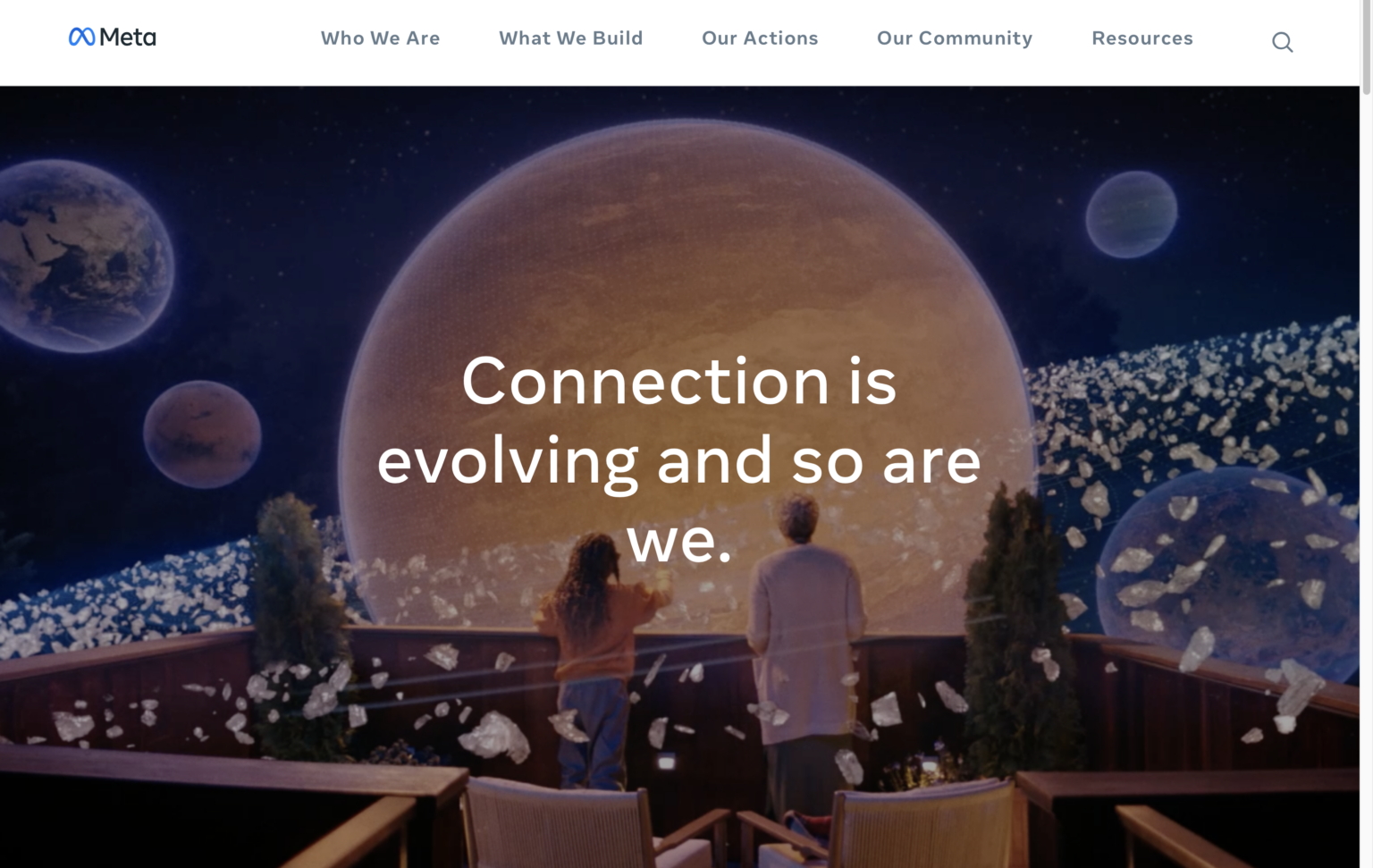

We all know Facebook, that one place where everyone shares their photos, stories,blogs, videos, articles, etc. Remember when your parents joined Facebook? And started sharing anything they wanted you to see? (They had no idea you can tag people in comments). Well, your parents and 3 billion people joined this social media giant before it became Meta. But do your parents even understand what the Facebook Metaverse is? Do any of us?
If you don’t, it’s okay. We’re all figuring this out together. Especially us marketers who help clients navigate the choppy waters of Facebook Ads every day.
Think of it as the internet brought to life, or at least rendered in 3D. Zuckerberg has described it as a "virtual environment" you can go inside of — instead of just looking at on a screen. Facebook has said its metaverse is poised to be a world of endless, interconnected virtual communities where people can meet, work and play. Users will be able to experience the metaverse through VR headsets like Facebook’s Oculus and Google’s Daydream View.

We are also witnessing a rise of the digital economies, where everything will be bought and sold using virtual currencies, also known as Cryptocurrencies. As of 2021, TripleA estimated global crypto ownership rates at an average of 3.9%, with over 300 million crypto users worldwide. And over 18,000 businesses are already accepting cryptocurrency payments (including Starbucks and AT&T).
Digital currencies are also used to purchase digital products. Recently, unique digital products known as non-fungible tokens (NFTs) have started to gain popularity. These are digital assets that cannot be replaced. These are signs that point to a new kind of digital economy. All that’s missing is a more widely-accepted marketplace for consumers to make transactions. The Facebook Metaverse is poised to speed up the growing digital economy and open it to a wider range of consumers.
Just like in the real world, there will be advertisements in virtual reality. The Facebook Metaverse is no exception. “Ads are going to continue being an important part of the strategy across the social media parts of what we do, and it will probably be a meaningful part of the metaverse, too,” Zuckerberg said in an earnings call following the announcement of the new name.
The metaverse, too, will have its own unique ad formats that come with full marketing attribution so advertisers can track traffic and invest intelligently. So how will advertising be in the Metaverse?
Advertisements are already making their way into video games due to the popularity of esports. These display ads can also be programmed to serve different ads to different users. Facebook’s Metaverse will likely be similar, with virtual billboards and banners for brand awareness.

Facebook Metaverse may feature product placement (like the Mercedes-Benz car in the image below) where companies can showcase their products virtually in the space. Retailers can team up with influencers to feature virtual products such as clothing with virtual fit outs.

Real Estate agents will be able to showcase the residential properties to potential buyers via virtual reality tours. Contractors will be able to show homeowners a renovation before construction begins (much like CAD 3D drawings but in a virtual real world). Higher education marketers may offer virtual campus tours to prospective applicants, especially those coming from abroad.

Business-to-business (B2B) companies will have the opportunity to market and sell in the Facebook Metaverse environment. Virtual meeting rooms, conferences, and networking events may be the new frontier for industries like software or professional services.

Now that you have a basic understanding of what the Metaverse is, let’s talk about how your business can start preparing for it. As of right now, there isn’t a lot that you can do to start building but there are communities where you can start learning. Here are some of the things you can do, as summarized by Laura Devinsky, a strategic analyst at Silverback Texas:
While we may not be able to predict everything that’s going to come with the Metaverse once it becomes mainstream, we can predict that it’s going to have an impact on businesses in general, marketing practices, and the marketers who pioneer the new strategies to propel business into the future. So you should start thinking about what your business’ role will be in the long run.
Some things to keep in mind as you contemplate your role in the Metaverse are things like:
And while some of these questions may seem so far-fetched that they border on irrelevant, remember that in the days before social media really started popping, back in 2006 and 2007 or thereabouts, most businesses hadn’t thought to have a team for social media management.